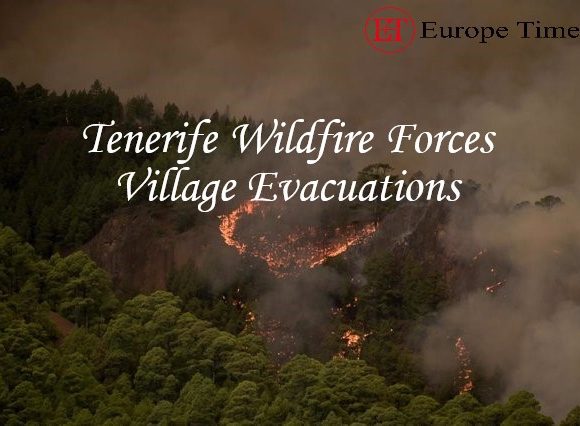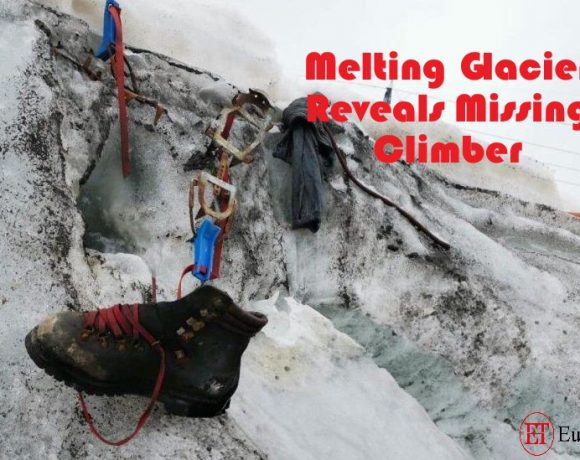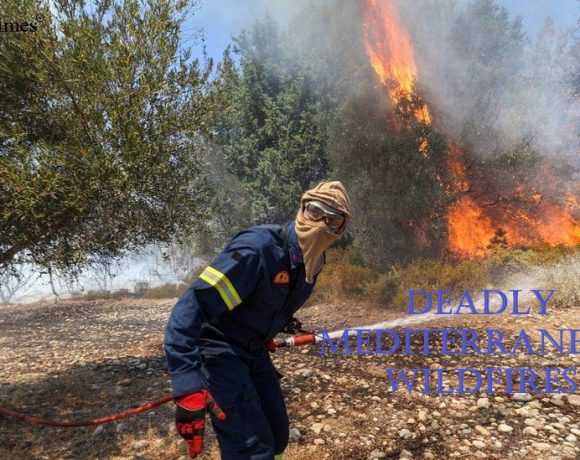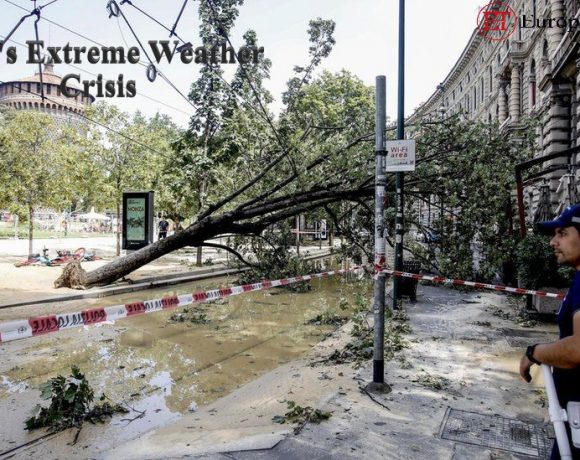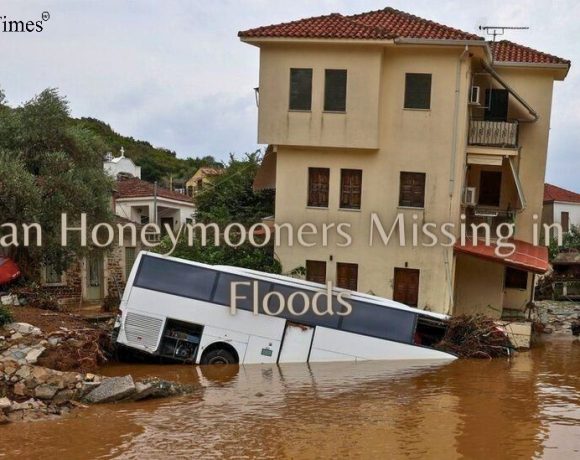
An Austrian couple celebrating their honeymoon in Greece has gone missing as heavy rains caused devastating floods, prompting a search operation by emergency services. The torrential downpour led to entire villages in central Greece being submerged, leaving residents stranded on their rooftops. Storm Daniel, affecting Greece, Turkey, and Bulgaria this week, has claimed the lives of over a dozen people.
The newlyweds, who had recently tied the knot upon arriving for their vacation, sought refuge in a bungalow they had rented in Potistika, near Mount Pelion, as the relentless rain battered central Greece. Unfortunately, the flash floods carried their rented house into the sea. The property’s owner, Samaras Thanakis, recounted advising the couple and other guests to seek higher ground, but the dire situation made decisions challenging.
Rescue efforts, hindered by collapsed bridges and damaged roads in the region, are ongoing, with the Greek fire brigade actively searching for the missing couple. Some areas in Greece received an astounding 800mm of rain, equivalent to a year’s worth of precipitation in just a few days. The Karditsa plain turned into a vast expanse of water, submerging villages near Palamas.
Palamas’ mayor, Giorgos Sakellariou, made a desperate plea for assistance on Greek television, highlighting the dire conditions and immediate danger residents faced. The extreme weather also affected Athens, the island of Skiathos, where numerous tourists remain stranded, as well as coastal regions around Volos and Pelion. In response to the escalating crisis, Prime Minister Kyriakos Mitsotakis canceled a major government event scheduled for the weekend.
Storm Daniel’s impact has been felt across the region, with Greece, Turkey, and Bulgaria collectively witnessing a death toll of over a dozen people, including at least four in Greece. Climate scientists have emphasized that global warming contributes to increased summer evaporation, leading to more intense storms.
Picture Courtesy: Google/images are subject to copyright



